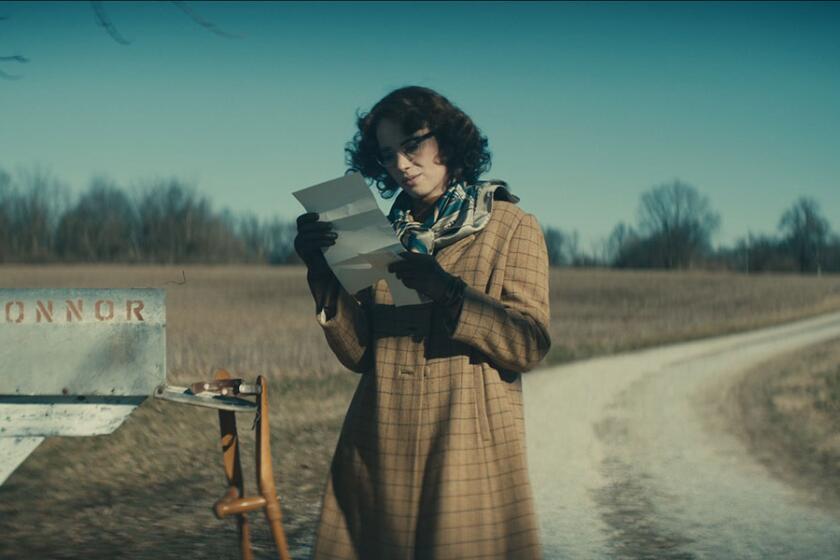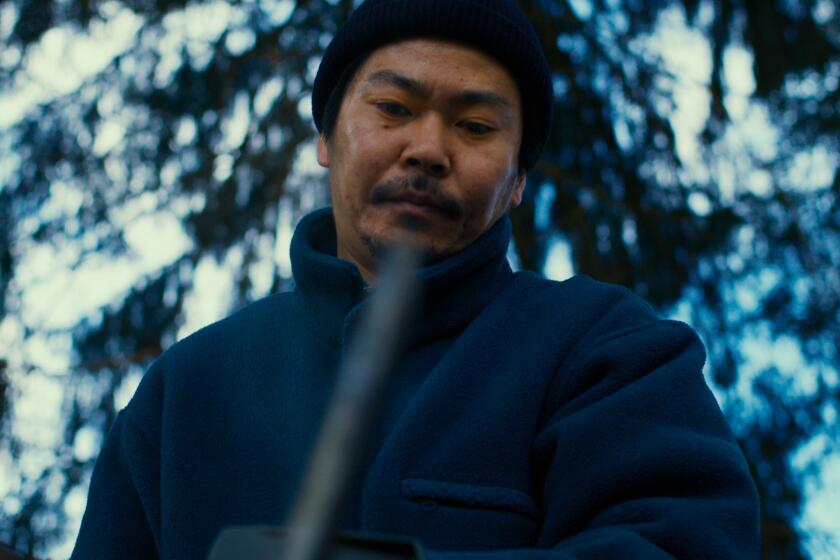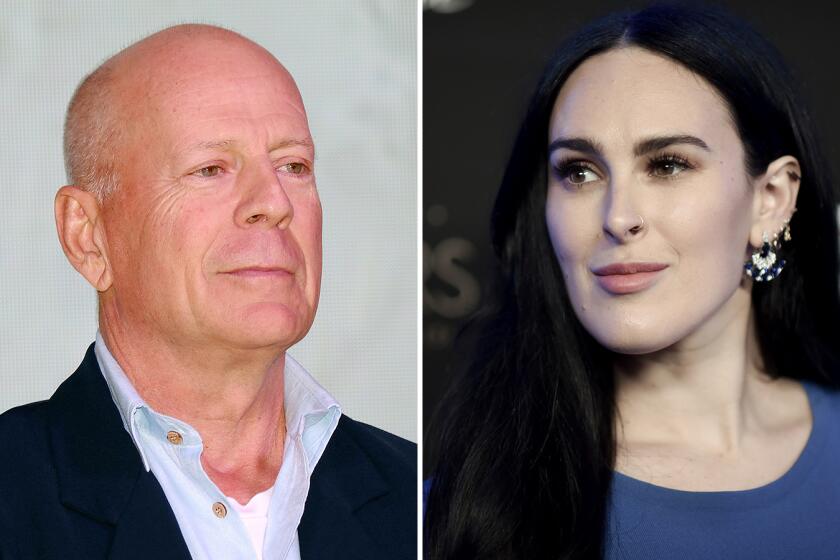Ex-Dissident in Moscow to Screen Film
Former Soviet dissident Ephraim Sevela sat back in his friend’s Moscow kitchen. The now-American author (“Legends From Invalid Street”) and film maker was reflecting on the welcome he was expecting to receive from his former colleagues at the upcoming screening of his film “Lullaby.”
An emotional film depicting the painful experiences of three Jewish children’s lives during the Holocaust, it was due to be shown at Moscow’s House of Writers, home to the Union of Soviet Writers. “I, the biggest troublemaker, have been invited back by the cinematographers union. I will be greeted with flowers and a standing ovation. You watch.”
His forecast was astounding considering the circumstances under which the now 60-year-old Sevela was forced to leave the Soviet Union and because of the political nature of the film--a story of Jews being screened in a society criticized as anti-Semitic. “It is a Jewish film from beginning to end, and it is being shown in a country where Jews were thought to be devils,” Sevela charged. “Is that not remarkable?”
No more remarkable, it seems, than the 10-minute standing ovation the film received from the 700 viewers who crowded into the 600-seat hall last week to see it. Or the astounding two-hour debate that followed the screening.
“It was a triumph,” said the exuberant Sevela. “They were crying for me to come back to live in Moscow and work here.”
A far cry, indeed, from Sevela’s last days in Moscow. A Soviet Jew, fighting for the rights of Jews to emigrate, Sevela and 23 others occupied the Supreme Soviet in Moscow in 1971 to draw attention to their plight. They feared imprisonment, but, surprisingly, 19 of the dissidents, including Sevela, were granted permission to emigrate to Israel.
Sevela emigrated to New York in 1975, but not before he fought in the Israeli army in the Yom Kippur War against Syria. It is another remarkable aspect of the film that it was produced by a former member of the Egyptian army, Hany Kamal, and that the final funding of $100,000 to complete it came from a Syrian, Hassan Balit.
Most of the funding for “Lullaby,” which was filmed on location in Poland, came from Russian-Jewish immigrants to the United States and West Germany. “It is difficult to break into the American film industry,” Sevela said, explaining his search for funds to make “Lullaby,” as well as his inability to make movies in the States despite his reputation in the Soviet Union, where he had made eight films.
Controversy still surrounds the showing of “Lullaby,” despite Sevela’s welcome back to the Soviet Union at the invitation of the chairman of the Union of Soviet Cinematographers, Alexander Kamschalov. In the current spirit of glasnost there will be a discussion of the film after its premiere, and Sevela has been warned that there may be members of the right-wing, anti-Semitic and racist Soviet movement Pamyat in the audience. Not deterred, the still crusading Sevela responded: “We have to change the attitude to Jews here.”
Luckily, Sevela is returning to a country much more open to political discussion than when he emigrated. Dissidents can now return for visits and speak openly with former colleagues; the works of formerly banned authors like Vladimir Nabokov (“Invitation to a Beheading”) and Alexander Solzhenitsyn (“The Gulag Archipelago”) are about to be published; banned works like George Orwell’s “1984” will also be published soon, and nationalist movements in the Baltic states are allowed a legitimate voice, the Popular Front, through which they launch their complaints.
So, perhaps this time around, Sevela’s strong desire to prompt change will cost him less dearly than before. “The first victim,” he said, “of my emigration, was my mother. She committed suicide after stories were printed about me calling me a traitor, a Zionist, an American lackey, an agent of the CIA. She was ashamed to go out on the street.”
Unable to return at the time of her death, Sevela is still prevented from seeing his mother’s grave. She is buried in a “closed city,” Bobruisk in Byelorussia.
But Sevela is looking to a brighter future. He is determined to achieve success in a country that once rejected him, his work and his politics. Over the next three months--the life of his current visa--Sevela will try to negotiate the rights to make a joint venture film with the Soviets.
In his briefcase he carries two possible scripts: one, “an anti-military film dedicated to the memory of the millions of living women for whom the (Second World) War left no men,” and the other a “tragic comedy about the love of a son for his mother.” Again the script is anti-military. The protagonist travels all over the world fighting in various wars, receiving medals for his actions, but never killing anyone.
“I’m very hopeful (of) what will happen now,” said Sevela who has the support of renowned Soviet film director Gregory Tschuchray (“The Ballad of the Soldier”).
Tschuchray, whose views hold political weight in the Soviet Union says he’d work with Sevela, whom he describes as a talented director, “with pleasure.”
More to Read
Only good movies
Get the Indie Focus newsletter, Mark Olsen's weekly guide to the world of cinema.
You may occasionally receive promotional content from the Los Angeles Times.






